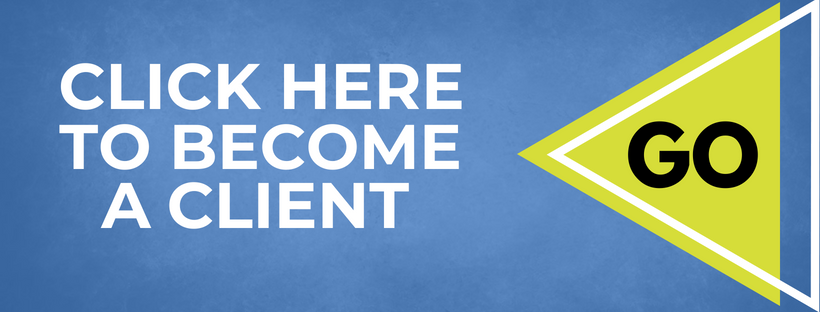You’ve learned several different techniques to stop or reverse the aging process, to live better, and to have a better life. But your mind is possibly the most powerful tool you possess in your healthy efforts. Your overall health is greatly determined by how you react to stressful situations in your life. Just learning to remain positive and having a cheerful attitude does wonders for your health.
The mess of stress
Under stressful situations, our bodies produce the hormone cortisol. Cortisol is there to act as an alarm system, it wakes up the body. When humans were out hunting for food thousands of years ago, we encountered situations that caused a “fight or flight” situation. We needed a minute or so of quick energy to get us through an intense physical situation. Our body immediately prepared to either battle for life or run for life. That is the way we survived during hand to hand combat in wars.
There are four stages of a stressful situation; alarm, action, recover, and lastly rest. Alarm notices the stressor, action is the “fight or flight,” recover is your body recuperating from the chemical onslaught, and rest is when you calm down from the ordeal. Centuries ago, we see a lion, run for our life, and then rest in the cave. Now-a-days, a car cuts us off, we slam on the brakes, and pull over to calm down. You can see the distinct stages.
Unfortunately, traffic is not our only stressor in life. Most of the modern-day stress factors are mental and not physical in nature. Stress in today’s world is of a constant, low-level type. Our body is perpetually in the action phase, not getting to the recover phase. The action phase is where the hormone cortisol is released. The recover phase is when our body can reverse the damage done by the cortisol. We do not get to recover properly and rarely get enough rest.
This is not to say that stress is a bad thing. Our body needs to respond to such stressors as sudden temperature change, standing up, or even planning a wedding. It is when we do not respond properly to the stressors that the damage begins. If planning that wedding causes a tremendous amount of anxiety, your body can respond with ulcers or headaches. Your immune system suffers and you are more prone to catching a cold or getting an infection when your body would normally fight off these invaders.
Because of the increase in cortisol, stress is known to contribute to heart disease, atherosclerosis, increase chance of death, rheumatoid arthritis, stomach ulcers, hypertension, diabetes, psoriasis, Parkinson’s disease, multiple sclerosis, and a host of other diseases.
There are many different ways to combat stress. Diet and exercise play a huge role in stress reduction. Eating properly and physical exercise both allow us to face life’s challenges with a healthy attitude. Even little things can reduce your overall stress level.
Here are twelve sure-fire ways to cut out stress:
1. Get married – studies show married people are happier and healthier
2. Get a checkup – take comfort in knowing you are healthy, prevents minor problems from turning into major problems
3. Hang out with friends – social relationships are vital for mental health
4. Nap time – taking a mid-day nap is both refreshing and stress relieving
5. Smile/Laugh – it’s almost impossible to be laughing and under stress at the same time
6. Go to God – attend Church service regularly, go to Bible study, or join a life group
7. Get a pet – a pet will give you unconditional love, devotion, and companionship
8. Take up a hobby – find an enjoyable activity that you can do to get your mind focused on something you take pleasure in
9. Get out of debt – getting you finances under control will relieve much of the stress in your life
10. Reduce alcohol – having more than the equivalent of one beer a day will induce bodily stress factors
11. Decaf – more than one cup of coffee a day ups the stress level, cut back
12. Time Management – using a “to-do” list or daily planner will remind you of what has to be done and when to do it
The best overall stress reducer is exercise. Exercising moves the blood and lymph system along and helps to remove waste products. It increases mood by making you feel good about yourself, improves appearance, and gives you a sense of accomplishment.
Count those sheep
Along with stress reduction, adequate sleep is necessary for mental and physical well being. For many people, getting to sleep, staying asleep, and waking up refreshed is difficult. In 2002, the National Sleep Foundation reported that 63 percent of American adults get less than eight hours of sleep a night, 50 percent of Americans have had insomnia, 37 percent say they get daytime drowsiness that interferes with daytime activities, and 33 percent get less sleep than they did five years ago.
A Japanese study reported that men who got less than five hours of sleep a night were two to three times more likely to have a heart attack. Another 2001 study found that those who slept less than six hours a night are more likely to gain weight and therefore develop type II diabetes. Adequate sleep restores memory function and revitalizes the immune system.
Just because the body is sleeping, does not mean the brain is inactive. The brain still must continue to instruct the body to breathe, the heart to beat, and regulate body temperature.
How much sleep do we need a day? Six hours? Eight hours? Ten hours? In reading several different studies, the optimum amount of sleep per day is between six and seven hours. Too much sleep (more than eight hours) increased one study participant’s chance of death by 12 percent over six years. In another study, more than eight hours of sleep showed a 14 percent increased chance of stroke. Too little sleep (less than six hours) increases the chances of many lifestyle related illnesses.
Researchers have shown that the amount of sleep a person needs does not change during their lifetime. They did find, however, that the quality of sleep declines with age. As people age, the amount of time spent in deep sleep is reduced. The decrease in deep sleep can be caused by decreased melatonin, changes in diet, hormonal changes associated with menopause, frequently waking to use the bathroom, stress, body pain, or depression.
In today’s fast paced world of 24 hour a day access by your cell phone, stressful job situations, and constant financial worries, proper sleep is crucial to your well being. Before heading to your doctor for the latest prescription sleep aid, try following the concept known as sleep hygiene.
Sleep hygiene is the list of tips and techniques to help you fall asleep, stay asleep, and increase the quality of your sleep. Set a sleep and wake time because the body prefers to be on a schedule when it comes to sleep. If you nap during the day, limit the nap time to no more than 45 minutes. Avoid alcohol, caffeine, and spicy foods for at least five hours before bed time. Exercise regularly but not within two hours of bedtime. Keep your bed and the temperature of your bedroom comfortable. Do not use the bed for working or playing, only for sleep. Practice relaxation techniques before bed and don’t take your worries to bed with you. Follow the same ritual every night for going to bed so your body will subconsciously know it is time to sleep. Lastly, if you do not fall asleep within 30 minutes, get up, go to another room, and read a calming book until you feel sleepy.
Sometimes sleep hygiene is not enough. Drinking a glass of milk or eating a banana gives your body the amino acid tryptophan that has been shown to induce sleep. Review your medications with your pharmacist or doctor to be sure none of your night time medication is stimulating. Don’t forget over the counter medications like some cough and cold preparations can cause you to remain awake. Taking a warm bath or shower before bed can help your body lower its temperature to promote sleep.
Several supplements and herbal products have been known to induce sleep. The most popular is magnesium. Taking 400mg of magnesium at bedtime has a mild muscle relaxing characteristic and may also help with restless leg syndrome. It causes your whole body to calm down, your muscles to relax, and allows you to slowly drift off to sleep.
As you read earlier, melatonin is also a popular sleep aid but most people take a far higher dose than needed. Different people require a different dose in order to fall asleep. Begin with 0.3mg a night for one week. If you do not notice results, increase to 0.5mg a night. Continue to increase your dose by 0.5mg once a week until you notice you are falling asleep easier. Melatonin should be taken 1/2 hour before going to bed on an empty stomach. Then cut back to an every other night dosing. Do not suddenly stop melatonin or you may get what is called rebound insomnia. Gradually taper your dose over a couple of weeks until you stop.
Other sleep inducing supplements are usually combined in a single pill. These include valerian root, passion flower, hops, L-theanine, lemon balm, and chamomile. You can try any product that contains one or more of these ingredients. If one product does not work for you, just try another. Eventually, you will find a supplement that works best for you and will give you a quality sleep.

